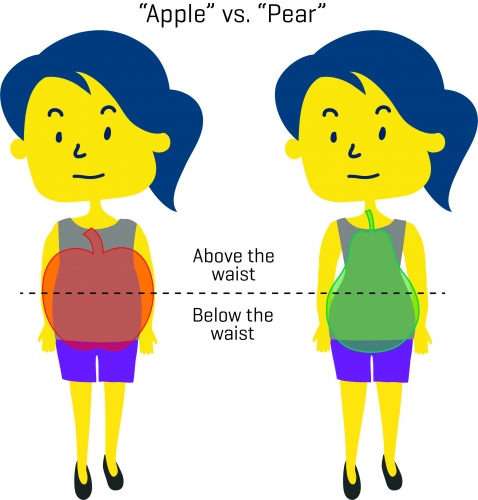Each woman experiences menopause in their own special way. Some women experience extremely uncomfortable changes, while others hardly notice any difference in their bodies or moods. Symptoms may also come and go over an extended period.
Some common symptoms are:
Irregular menses
This is usually the first sign of menopause. Some women may have heavy menses, more frequent menses or spotting and bleeding between cycles.
Hot flushes and night sweats
A hot flush is a feeling of warmth that spreads over the body and is often most pronounced in the face, neck and chest. It can happen at any time of the day and vary from mild to intense, often accompanied by sweating, palpitations and anxiety. It may also be severe enough to wake you up from sleep leading to insomnia, poor sleep and tiredness. Hot flushes can last from a few seconds to 30 minutes or more and affect up to 70 % of women.
Difficulty sleeping
Most of the time, this is related to interrupted sleep due to hot flushes.
Body aches, stiffness
As your oestrogen level falls you may notice a loss of muscle strength. This can be aggravated by emotional stress and tension, leading to aches in the neck and back.
Weight gain
Excessive weight gain is a common problem during menopause. Due to hormonal changes fat tends to settle around the waist and your abdomen becomes rounder, changing your body shape from ‘pear’ to ‘apple’ shaped. Following menopause, less food needs to be consumed as the body does not burn energy as fast as before.

Skin and hair changes
With reduced oestrogen levels, the skin’s connective tissue becomes less elastic and the skin gets thinner, drier and more wrinkled. Hair growth also slows down and becomes thinner.
Vaginal/urinary tract changes
The vaginal lining can become drier, thinner and less elastic following menopause. One may find sexual intercourse uncomfortable, leading to loss of sexual desire. The skin around the vaginal opening may also become dry, leading to itchiness and vaginal discomfort.
Changes around the vagina can cause the urethra to become irritated or inflamed, leading to frequent urination or urinary tract infections.
Incontinence may also develop, where urine leaks when you cough, laugh or exercise due to the weakening of pelvic floor muscles.
Emotional changes
During menopause, you may experience mood swings, anxiety, forgetfulness, tiredness, lethargy or depression. These symptoms may be made worse by other physical symptoms such as hot flushes or body aches.
Decreased bone density
There is a rapid loss of bone density in the first three to five years after menopause. This can lead to osteoporosis and an increased risk of fractures.
Other symptoms
Some women may experience other symptoms, such as headaches, breast tenderness and palpitations.